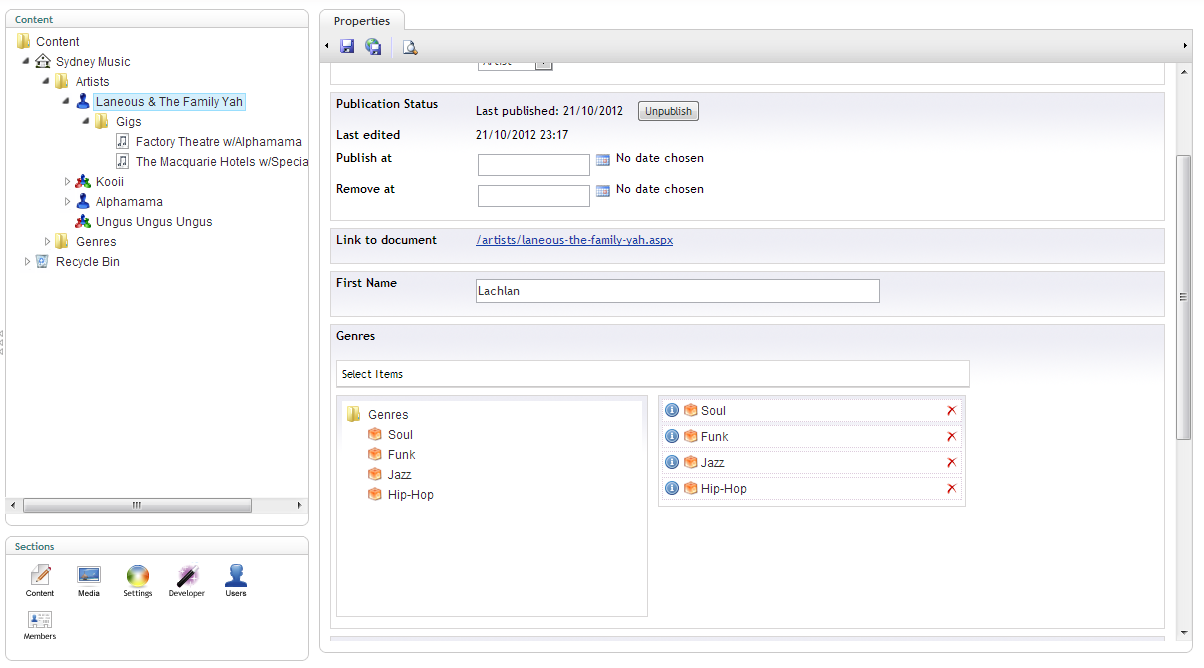
uMapper lets .NET developers map & query nodes as strongly typed objects with minimal configuration. It does its best to map the properties and relationships of a node to an object by name, but features a fluent interface for manual configuration in the much the same way AutoMapper does.
I’ve put together an example project with Umbraco 4.9.0 which shows example usage of uMapper. A SQLCE database is included as a file, and the username and password for the Umbraco back office are both “admin”.
Add a reference to uComponents.Mapping.dll in your web project (this should already be added if you used NuGet to install uComponents).
Create your document types in Umbraco:
 Make sure you use CSV as the data format for any multi-node pickers you use.
Make sure you use CSV as the data format for any multi-node pickers you use.
Create your corresponding models as .NET classes in your project, naming the classes the same as the document type aliases:
public class Artist
{
public string Name { get; set; }
public IEnumerable<Genre> Genres { get; set; } // You can also use List<T>
}ApplicationStartupHandler and create your maps (these must be created before you start mapping nodes, or uMapper doesn’t know which classes to map to). Now is also a good time to enable caching (which uses the HttpContext.Current.Cache):using uComponents.Mapping;
using umbraco.businesslogic;
public class ExampleStartupHandler : ApplicationStartupHandler
{
public ExampleStartupHandler()
{
uMapper.CreateMap<Site>();
uMapper.CreateMap<Genre>();
uMapper.CreateMap<Artist>();
uMapper.CachingEnabled = true;
}
}public partial class Site : System.Web.UI.MasterPage
{
protected Homepage Model { get; set; }
protected IEnumerable<Artist> Artists { get; set; }
protected IEnumerable<Genre> Genres { get; set; }
protected void Page_Load(object sender, EventArgs e)
{
this.Model = uMapper.GetCurrent<Homepage>();
this.Artists = uMapper.GetAll<Artist>
.OrderBy(artist => artist.Name);
this.Genres = uMapper.GetAll<Genre>();
var featuredGenre = uMapper.Find<Genre>(1234); // node ID is 1234
}
}